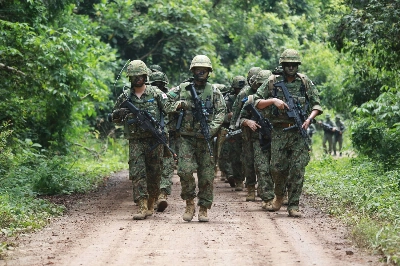In 1995, during the 50th anniversary of the Nuremberg Trials, U.S. President Bill Clinton endorsed the creation of an International Criminal Court, the first U.S. president to do so. Despite his sup port, however, the United States joined China, Iraq, Libya, Israel, Qatar and Yemen in voting against the treaty establishing that court in Rome in 1998. The main purpose of the ICC is the prosecution of those accused of genocide, crimes against humanity and war crimes. Because its role is critical to the success of the ICC, the U.S. should support its creation and join the 98 countries that so far have signed the treaty.
There are several reasons why such a court is needed. After the Holocaust, when the world thought it had seen the end of heinous crimes against humanity, similar crimes continued to be perpetrated. Although the U.N. Security Council had established ad hoc tribunals for war crimes committed in Yugoslavia and Rwanda, no such tribunal was established for the trial of Pol Pot in Cambodia, the creation of which was adamantly opposed by China. In addition, although the ad hoc tribunals have proved useful for punishing crimes after the fact, a permanent tribunal is needed to deter crimes before they are committed.
Nations rarely prosecute their own officials responsible for human-rights abuses. In several instances, national judiciaries have proven incapable of administering justice when crimes against humanity were committed. And when the perpetrators are military personnel the possibility of their being tried fairly by military tribunals is considerably diminished. This is what happened in Argentina following the so-called dirty war in which an estimated 30,000 civilians were murdered. Only civilian courts were able to prosecute and punish the Argentine military leaders who committed serious human-rights abuses. And this is what is happening with Chile's former strongman Gen. Augusto Pinochet: The chance of him receiving a fair prosecution also rests only with civilian courts. As French politician Georges Clemenceau once remarked, "Military justice is to justice what military music is to music."

















With your current subscription plan you can comment on stories. However, before writing your first comment, please create a display name in the Profile section of your subscriber account page.